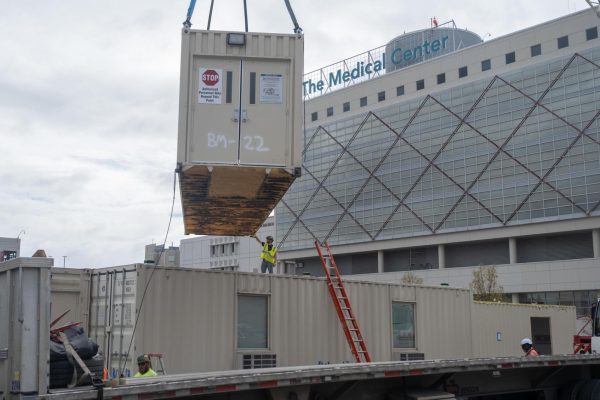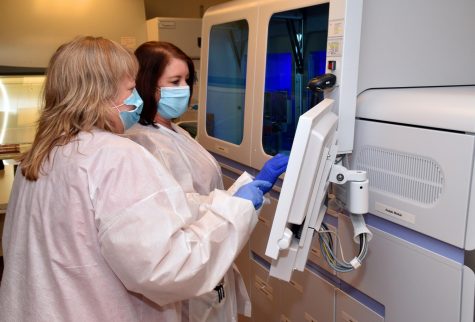Less change is bringing changes to shopping
First, the pandemic made everyone stock up on Lysol and hand sanitizer, then toilet paper. Now the nation’s newest shortage is pocket change, and it’s going to affect the way consumers shop.
“They don’t go out and if you don’t go out, you don’t perform transactions using cash. Even if you go out, people are trying to stay away from cash because they don’t want to be touching bills and coins,” Antonio Saravia, associate professor of economics and director of the Center for the Study of Economics and Liberty at Mercer University, said of the shortage
According to an article published by NPR less coins were being produced and circulating due to the pandemic. In June the Federal Reserve made the decision to start rationing coins.
Many consumers already opt for using “contactless payment,” such as cards, or using their phone. As a result, Retailers have been forced to change procedures at check out.
Kroger is making positive change, literally. Customers have the option to round up their purchases, with the extra change going to their Zero Hunger | Zero Waste Foundation, which supports hunger relief across the country.
According to an email statement from Kroger, “for customers that choose not to donate, our cashiers will load the coin value due back through their loyalty card.” The extra change can then be used on future purchases.
Other Middle Georgia grocery stores aren’t worried about the shortage. In an email, Nicole Maristany Krauss, Publix media representative for Georgia, said that the chain made “internal process changes as to not disrupt our supply,” and that customers wouldn’t be affected by the shortage.
The Fresh Market did not provide a statement, but Meghan Flynn, a media representative for the company said it “really hasn’t been an issue.”
While it may be tempting to go couch diving for lost coins, Saravia said to hold off.
“It would help, but I don’t know if I can recommend because, again, you still have to be cautious of the virus,” Saravia said.
Saravia said that the trend of not using physical currency may be something that stays.
“I don’t think it’s gonna reverse, I think this just pushes it forward, and we’re gonna see less and less cash transactions, people are going to be afraid of touching cash,” he said.
To Saravia there are more advantages to a “cashless economy” than just combating the spread of germs.
“You save money on printing these things. Second of all, you help a lot in the fight against drug trafficking or illegal activities, because you know, every transaction would have a record because it’s electronic,” he said.




















